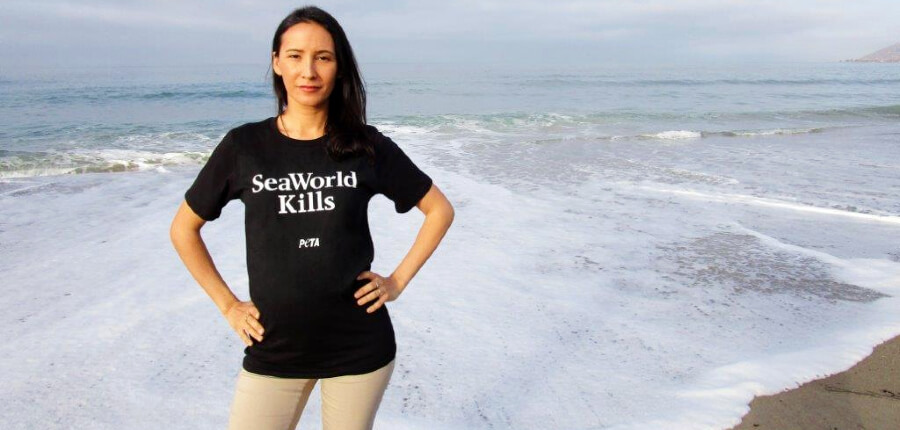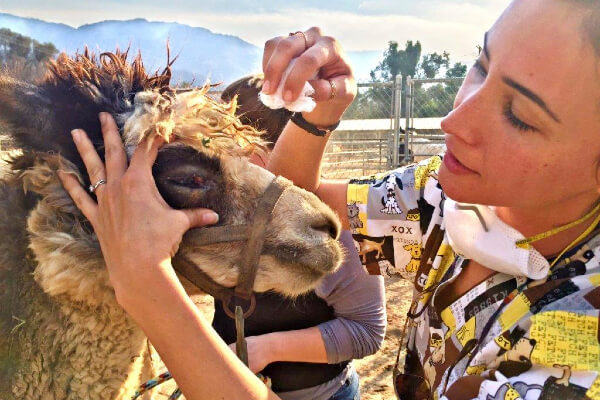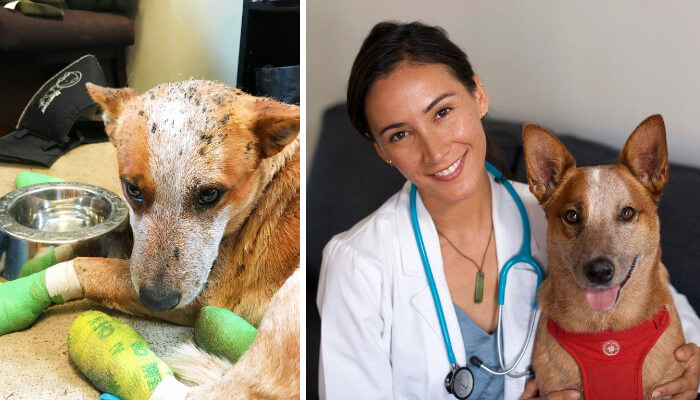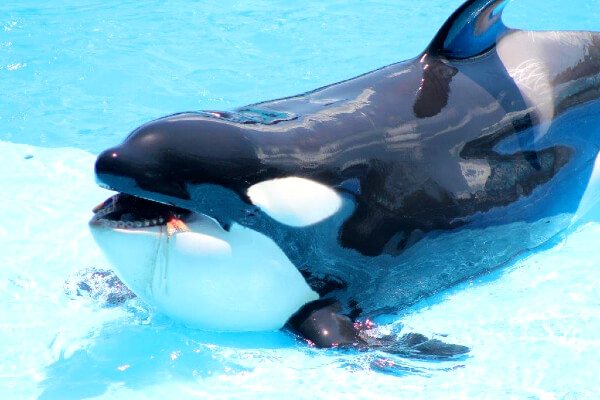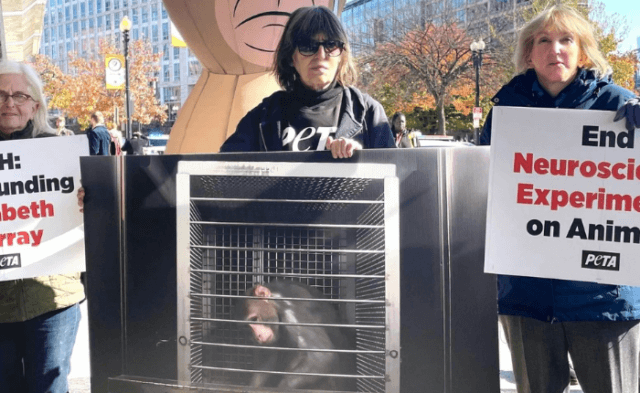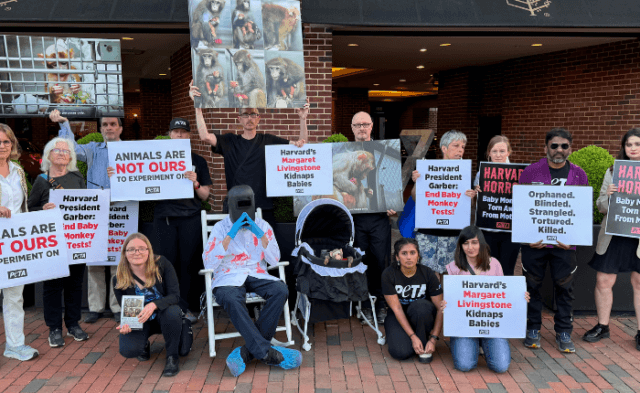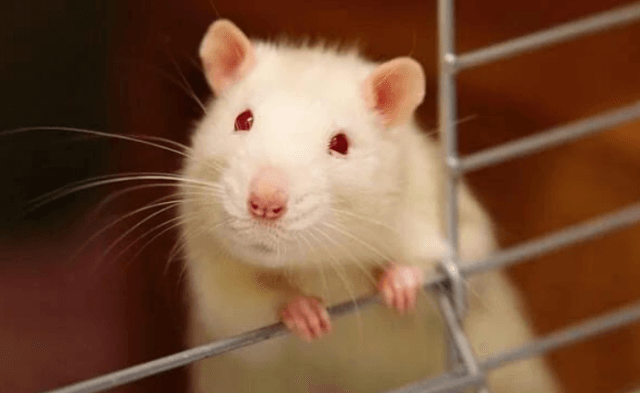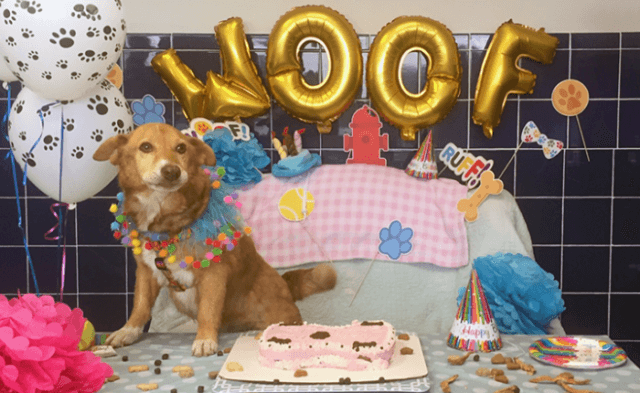Please enjoy this article from the spring issue of our magazine, PETA Global. To begin your subscription, become a PETA member today!
My mother says I was born caring about animals, including all manner of sick or injured wildlife who showed up on our doorstep. Thanks to my family’s tolerance of endless vet bills, I learned the basics of wildlife rehabilitation early on. Growing up in both California and Hawaii, I developed a special passion for the ocean and the animals who live in it. I always knew I wanted to help marine mammals, but I could never have predicted where my dream would lead me.
Busting the Whalers
The summer before I entered veterinary school, I attended a screening of The Cove, which exposed the barbaric slaughter of dolphins in Taiji, Japan, driven primarily by the captivity trade. I went on to volunteer for the movie’s production company, and we got a tip-off that a famous sushi restaurant in Santa Monica, California, was quietly selling whale meat to VIP customers. With federal agents, we orchestrated an undercover operation in which a friend and I posed as customers to collect samples of the meat for genetic testing. We had the parking lot staked out and watched the chef leave the building and pull the meat from a chest in his car. The restaurant was nailed for violations of the US Marine Mammal Protection and Endangered Species acts and later shut down.
From California Fires to Chinese Farms
My work with the PETA Foundation has taken me around the world. When wildfires came within miles of my home in California, I provided veterinary care to animals who’d sustained burns and other injuries, including Goose, a badly burned dog I later adopted.
I flew with representatives from one of the world’s largest retailers to China to inspect the farms that supplied its angora. To this day, I feel ill about what I saw. Rabbits, suffering greatly, were housed in filthy cages that were stacked up in row after row. But that trip led to big changes. It showed the company what PETA has been saying all along – that there’s no “humane” way to steal from animals – and the retailer banned angora from its stores worldwide.
SeaWorld’s Marine Jail Makes Me See Red
Before that, I researched whales in Argentina, investigated coral reef health with the US Geological Survey in Honolulu, and assisted on expeditions to assess bottlenose dolphins’ wellbeing in the Indian River Lagoon. Ultimately, my goal of freeing marine mammals from abuse led me to PETA, where I set my sights on the biggest exploiter of them all: SeaWorld. At SeaWorld, I documented animal suffering: orcas with teeth worn down to nubs from biting the gates and the sides of their tanks in frustration, animals covered with scars from attacks by stressed-out and aggressive tankmates, animals floating listlessly at the surface of their tanks because of captivity-induced distress, and more. When PETA continually protested these abysmal conditions, SeaWorld banned me for life. Years later, I coauthored a scientific paper concluding that the extreme stress of constant confinement may even cause orcas’ brains to shrink.
When I presented my findings, did SeaWorld improve conditions? No. But PETA pressure prevailed, and SeaWorld ultimately had to end its orca-breeding program. The current generation of orcas imprisoned there will be the last. I’m now a veterinary adviser to The Whale Sanctuary Project as it works to establish seaside sanctuaries – so that when (not if) PETA liberates the remaining animals, they can live out their lives in their rightful ocean homes.
Take Action Now
Invite everyone you know to stream Blackfish with you on Netflix or another service. Share the facts with them, including that SeaWorld sexually abuses and drugs its aquatic prisoners. And turn your passion for protecting animals into a career: Visit PETA.org/Jobs to see how your skills can help advance animal rights!
*****
Dr. Heather Rally is a Supervising Veterinarian for the PETA Foundation’s Captive Animal Law Enforcement (CALE) division.

